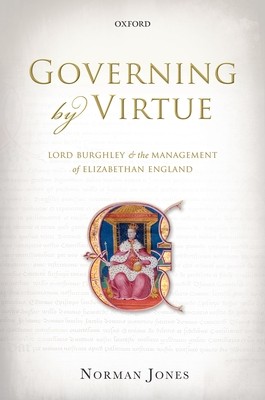
- We will send in 10–14 business days.
- Author: Norman Jones
- Publisher: Oxford University Press, USA
- ISBN-10: 0199593604
- ISBN-13: 9780199593606
- Format: 15.5 x 23.6 x 2.3 cm, hardcover
- Language: English
- SAVE -10% with code: EXTRA
Reviews
Description
Managing early modern England was difficult because the state was weak. Although Queen Elizabeth was the supreme ruler, she had little bureaucracy, no standing army, and no police force. This meant that her chief manager, Lord Burghley, had to work with the gentlemen of the magisterial classes in order to keep the peace and defend the realm. He did this successfully by employing the shared value systems of the ruling classes, an improved information system, and gentle coercion.
Using Burghley's archive, Governing by Virtue explores how he ran a state whose employees were venal, who owned their jobs for life, or whose power derived from birth and possession, not allegiance, even during national crises like that of the Spanish Armada.EXTRA 10 % discount with code: EXTRA
The promotion ends in 20d.09:35:25
The discount code is valid when purchasing from 10 €. Discounts do not stack.
- Author: Norman Jones
- Publisher: Oxford University Press, USA
- ISBN-10: 0199593604
- ISBN-13: 9780199593606
- Format: 15.5 x 23.6 x 2.3 cm, hardcover
- Language: English English
Managing early modern England was difficult because the state was weak. Although Queen Elizabeth was the supreme ruler, she had little bureaucracy, no standing army, and no police force. This meant that her chief manager, Lord Burghley, had to work with the gentlemen of the magisterial classes in order to keep the peace and defend the realm. He did this successfully by employing the shared value systems of the ruling classes, an improved information system, and gentle coercion.
Using Burghley's archive, Governing by Virtue explores how he ran a state whose employees were venal, who owned their jobs for life, or whose power derived from birth and possession, not allegiance, even during national crises like that of the Spanish Armada.

Reviews